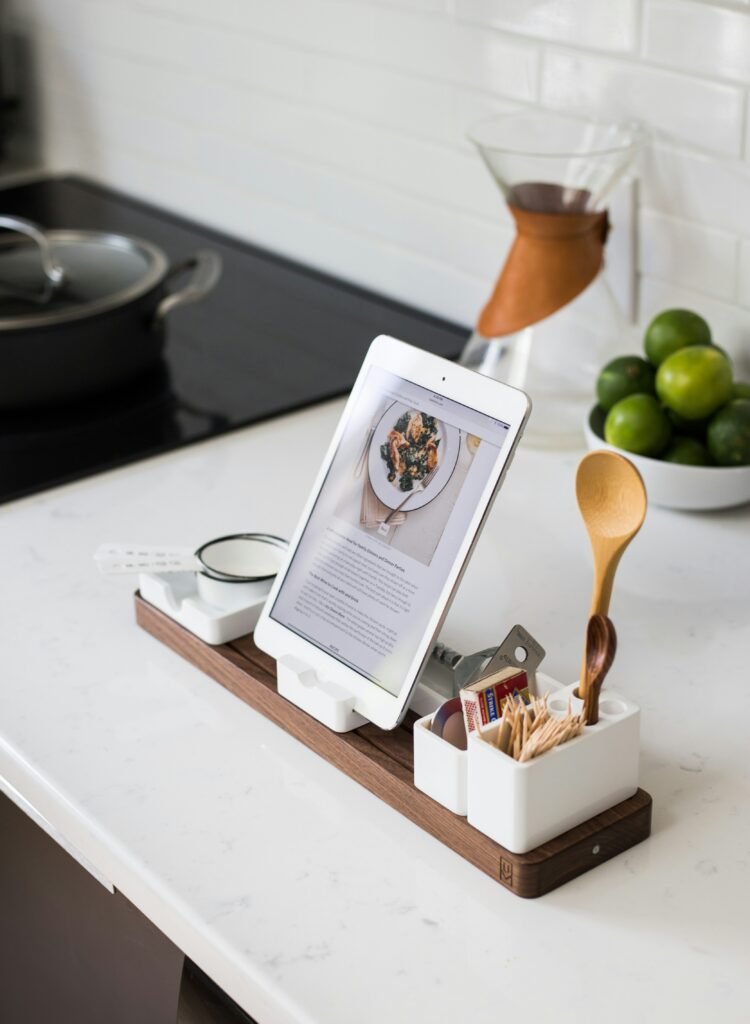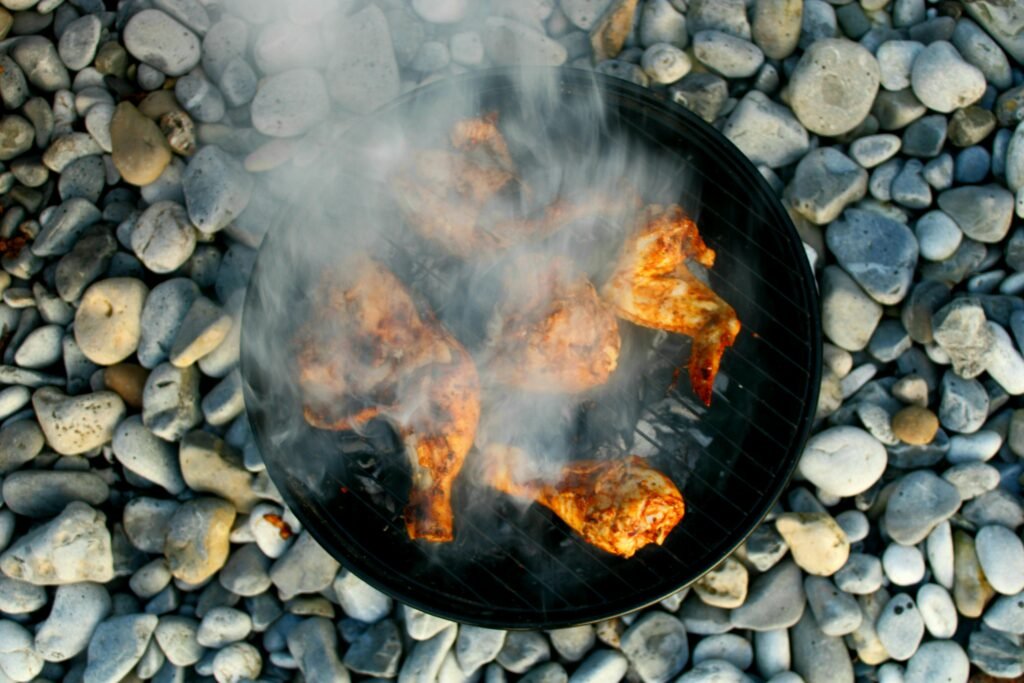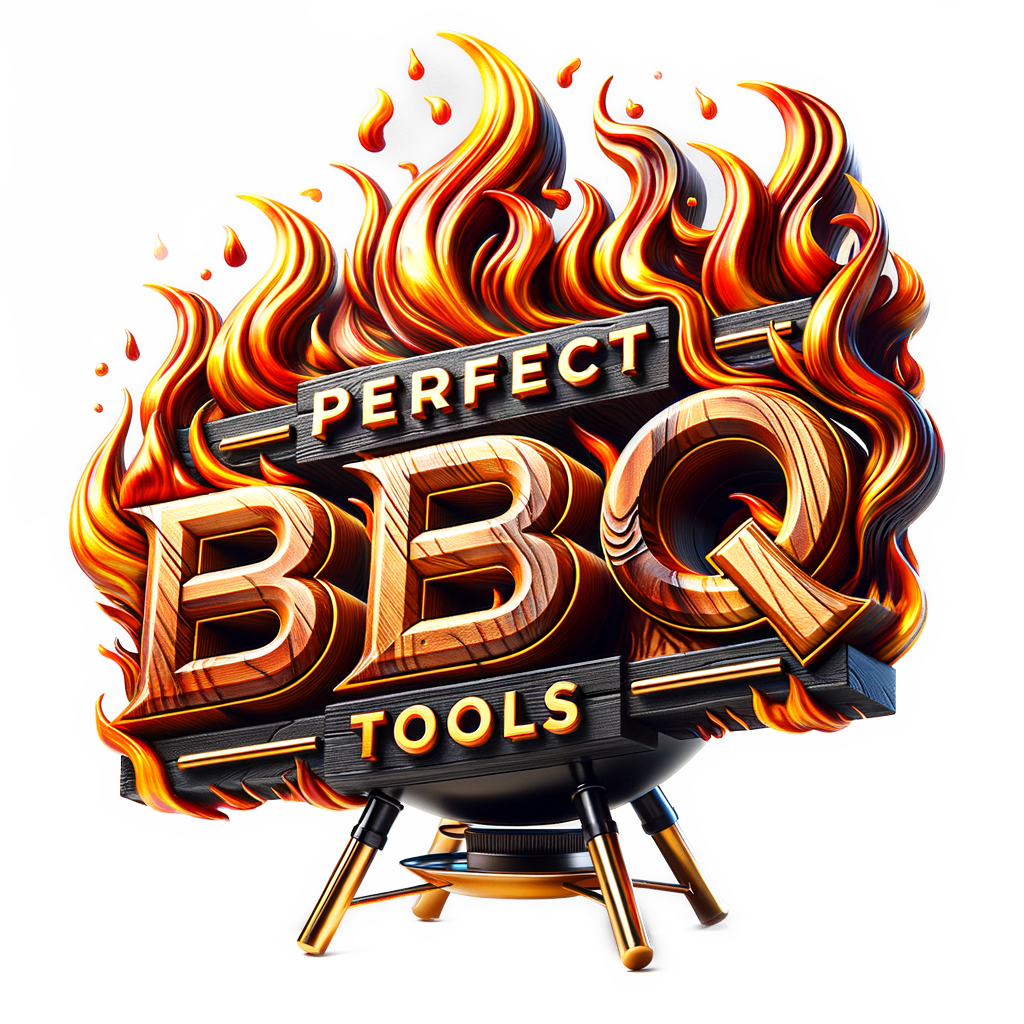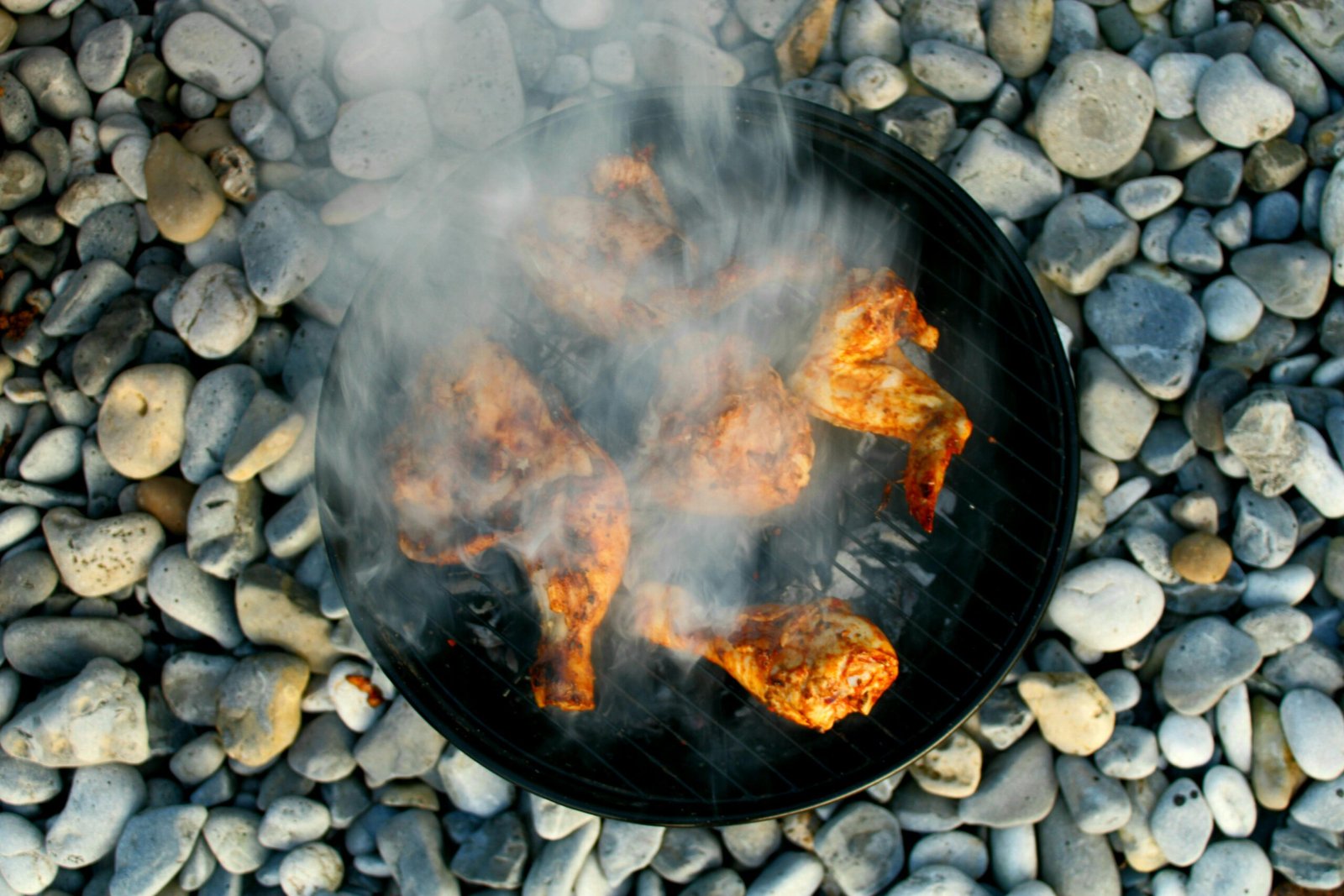Imagine you’re out in the wild, surrounded by the stunning beauty of nature, and craving a perfectly grilled burger. The thought of enjoying a sizzling piece of meat under the open sky is simply irresistible. But then a question pops into your head: can I use a barbecue grill on a camping trip? Well, the answer might surprise you. In this article, we will explore the possibilities of barbecuing on your camping adventure and uncover the dos and don’ts of grilling in the great outdoors. So grab a seat, and let’s fire up the grill!

The Basics: Grills and Camping
Understanding the fundamentals of using a BBQ grill
When it comes to camping, food is an essential part of the experience, and what better way to prepare your meals than with a BBQ grill? To fully enjoy the camping trip, it is important to understand the fundamentals of using a BBQ grill. From setting up to cooking delicious meals, having a good grasp of the basics will ensure a successful grilling adventure.
Can grills be used on camping trips?
Absolutely! Grills are a fantastic addition to any camping trip, allowing you to cook up tasty meals in the great outdoors. Whether you prefer the flavor of charcoal-grilled food or the convenience of gas grills, there are options available to suit your camping needs. Grills provide a fun and enjoyable way to cook meals while creating lasting memories around the campfire.
Types of BBQ grills suitable for camping
When it comes to choosing a BBQ grill for your camping trip, there are several options to consider. Compact and portable grills are popular choices, as they are easy to transport and set up at the campsite. Some common types of BBQ grills suitable for camping include charcoal grills, gas grills, and electric grills. Each has its own advantages, so it ultimately comes down to personal preference and the specific needs of your camping trip.
Safety Precautions
Importance of safety while handling BBQ grills outdoor
While grilling can be a fun activity, it is essential to prioritize safety when handling BBQ grills outdoors, especially in a camping setting. Open flames and hot surfaces pose potential risks, but with proper precautions, you can ensure a safe grilling experience. It is crucial to take the necessary safety measures to protect yourself, your fellow campers, and the surrounding environment.
Tips on maintaining safety
To maintain safety while grilling in the outdoors, always remember to keep your grill in a stable position on a non-flammable surface. Additionally, never leave your grill unattended and make sure to keep children and pets at a safe distance. It is also important to have a fire extinguisher or a bucket of water nearby in case of emergencies. Following these safety tips will significantly reduce the risk of accidents and allow you to enjoy grilling in a safe environment.
Space requirements for grill set up
When setting up your grill at the campsite, it is essential to consider the space requirements. Ensure that you have ample room for maneuvering around the grill and that it is positioned at a safe distance from any flammable materials such as tents or dry grass. Adequate ventilation and a clear cooking area are also important factors to take into consideration. By allowing enough space and maintaining a safe grilling environment, you can enjoy your camping trip without any safety concerns.
Knowing Your Grill
Essential features of a camping BBQ grill
When choosing a camping BBQ grill, there are several essential features to look for. Firstly, portability is key, as you will need a grill that is easy to transport and set up at the campsite. Compact grills with foldable legs or handles are ideal options. Additionally, consider the grill’s cooking area and heat distribution capabilities, as these factors will affect your cooking experience. A removable grease tray and easy-to-clean surfaces are also beneficial features to look for when choosing a camping grill.
Size and weight considerations
Size and weight are important considerations when selecting a camping BBQ grill. As you will be carrying it to and from the campsite, a lightweight and compact grill is highly recommended. Look for a grill that can easily fit into your camping gear and is not too bulky to carry. Additionally, consider the cooking surface area of the grill, ensuring it is sufficient for your needs without being unnecessarily large and cumbersome.
Ease of use and convenience features
When camping, convenience is key, and your grill should be no exception. Look for grills that are easy to set up and use, with features such as quick ignition systems or temperature control knobs. Additionally, consider any additional features that may enhance your grilling experience, such as side tables for food preparation, built-in thermometers for accurate cooking temperatures, or grill covers for protection during transport. Choosing a grill with these convenience features will make your camping cooking experience much more enjoyable.
Charcoal Versus Gas Grills
Comparing advantages and disadvantages
The debate between charcoal and gas grills is a popular one when it comes to camping cooking. Both options have their advantages and disadvantages, and understanding them will help you make an informed decision based on your preferences and camping requirements.
Charcoal grills offer that classic smoky flavor and are often lighter and more portable than gas grills. They are also generally more affordable and do not require a power source. However, they do take more time to set up and require charcoal and lighter fluid for ignition. Cleanup can also be more intensive due to the ash produced.
On the other hand, gas grills provide the convenience of quick ignition and temperature control. They are typically larger and offer more cooking space, making them suitable for larger camping groups. Gas grills are also easier to clean. However, they may be more expensive, require a propane or butane fuel source, and lack the traditional smoky flavor associated with charcoal grills.
Ultimately, the choice between charcoal and gas grills comes down to personal preference, cooking style, and the specific needs of your camping trip.
Portability consideration
When it comes to camping, portability is crucial, and this also applies to your choice of grill. Both charcoal and gas grills can be portable, but there are a few factors to consider. Charcoal grills are typically lighter and more compact, making them easier to transport. However, they require additional bags for charcoal and may produce more ash that needs to be properly disposed of.
Gas grills, while slightly heavier, often come with wheels and folding features that make them easier to move around. They require a propane tank, which adds weight, but this can be beneficial for longer camping trips where multiple meals need to be cooked. Considering the level of portability you need for your camping adventures will help you determine the best grill option for you.
Availability of fuel during camping
When camping, it is important to consider the availability of fuel for your chosen grill. For charcoal grills, charcoal and lighter fluid can typically be purchased at camping supply stores or even at the campsite itself. However, it is advisable to bring along enough charcoal and lighter fluid for your entire trip to ensure you have an ample supply.
For gas grills, propane or butane fuel canisters are necessary. These can often be found at camping supply stores, gas stations, or general stores near popular camping areas. It is important to check the fuel availability in the camping location beforehand, especially if you have a specific type of gas canister connector. Bringing extra fuel canisters is also a good idea to ensure you don’t run out during your camping trip.

Setting Up Your Grill
Site considerations
Before setting up your grill at the campsite, it is crucial to consider the location and surroundings. Look for a level and stable surface to place your grill, ensuring that it will not tip over during cooking. Keep in mind any flammable materials nearby, such as tents, trees, or dry grass, and maintain a safe distance to prevent any accidents or fire hazards. Adequate ventilation is also important, as grills produce smoke and fumes that need to dissipate properly.
Step-by-step set up guide for BBQ grills
Setting up a BBQ grill at your campsite can be a breeze with the following step-by-step guide:
Choose a suitable location:
- Find a level and stable surface.
- Ensure a safe distance from flammable materials.
- Consider ventilation requirements.
Assemble your grill:
- Follow the manufacturer’s instructions for assembly.
- Make sure all parts are securely connected.
Prepare the cooking area:
- Clean the cooking surface if necessary.
- Place a layer of aluminum foil or a grill mat for easy cleanup.
Ignite the grill:
- For charcoal grills, light the charcoal using a chimney starter or lighter fluid.
- For gas grills, follow the manufacturer’s instructions for igniting the burners.
Preheat the grill:
- Allow the grill to heat up for a few minutes to the desired temperature.
Start cooking:
- Place your food on the grill and cook according to your recipe or preferences.
Tips on optimizing grill performance
To optimize the performance of your grill on your camping trip, consider the following tips:
- Keep the grill clean: Regularly clean the cooking surface and grates to prevent food from sticking and ensure even heat distribution.
- Preheat properly: Allow your grill to preheat for a few minutes before cooking to ensure an even cooking temperature.
- Use direct and indirect heat: For different types of food, consider using both direct and indirect heat zones on your grill to achieve the desired cooking results.
- Monitor the temperature: Use a thermometer to monitor the internal temperature of your grill to ensure food safety and proper cooking.
- Control flare-ups: If you encounter flare-ups during cooking, move the food away from the flames or reduce the heat to avoid excessive charring.
- Use the lid effectively: Utilize the lid of your grill to maintain consistent heat and prevent heat loss during cooking.
Cooking on Grill: Tips and Ideas
Knowing the ideal cooking temperatures
Knowing the ideal cooking temperatures for different types of food is essential to achieve the best results on your camping grill. Here are some general guidelines:
- High heat (400-450°F/200-230°C): Ideal for searing meat, chicken, or fish to lock in juices and achieve a crispy exterior.
- Medium heat (350-400°F/175-200°C): Suitable for cooking thicker cuts of meat or poultry, allowing for even cooking without excessive charring.
- Low heat (225-300°F/107-150°C): Perfect for slow cooking ribs, roasts, or larger cuts of meat to achieve tenderness and smoke flavor.
Keep in mind that these temperatures serve as a guide, and individual recipes may have specific temperature requirements. Using a thermometer to measure the internal temperature of the food will help ensure it reaches a safe and appropriate level of doneness.
Managing heat distribution with grills
Grills can have areas of varying heat intensity due to factors such as the placement of burners or the presence of hot spots. Understanding how to manage heat distribution on your grill will help you cook your food more evenly. Here are some tips:
- Utilize direct and indirect heat zones: Direct heat refers to cooking directly over the heat source, while indirect heat involves cooking with the heat source to the side. By using both zones, you can control the degree of direct or indirect heat your food receives.
- Arrange food accordingly: Place thicker or tougher cuts of meat, which require longer cooking times, in the indirect heat zone to allow for even cooking without excessive charring. Thinner cuts or items that require a quick sear can be placed directly over the heat source.
- Rotate and reposition food: Periodically rotate or reposition your food to ensure even exposure to heat and prevent any hot spots from overcooking or undercooking certain areas.
By managing heat distribution effectively, you can achieve deliciously cooked meals on your camping grill.
Creative food ideas to grill on a camping trip
Grilling on a camping trip offers endless possibilities to explore and create delicious meals. Here are some creative food ideas to try on your next camping adventure:
Grilled vegetables: Slice up a variety of colorful vegetables, such as bell peppers, zucchini, and mushrooms, toss them in olive oil and your favorite seasonings, and grill until tender and slightly charred. These make excellent side dishes or can be used to create flavorful grilled veggie wraps.
Foil packet meals: Prepare individual foil packets containing your choice of protein (chicken, fish, or even tofu) along with various vegetables, seasonings, and a drizzle of sauce or marinade. Seal the packets tightly and grill them until everything is cooked through. This method allows for easy cleanup and flavorful, tender meals.
Campfire pizzas: Prepare individual pizza dough or use pre-made bases. Top them with your favorite sauce, cheese, and toppings, and place them on the grill. Close the lid and cook until the cheese is melted and bubbly. This fun and customizable meal will be a hit with everyone.
Grilled fruit skewers: Thread chunks of your favorite fruits, such as pineapple, watermelon, and peaches, onto skewers. Grill them for a few minutes until they caramelize slightly, creating a sweet and smoky dessert or snack.
Stuffed burgers: Create flavorful burgers by stuffing them with cheese, bacon, or even grilled vegetables. Cook them on the grill until they reach your desired level of doneness, and enjoy a juicy and indulgent camping meal.
These are just a few ideas to get your creative grilling juices flowing. Feel free to experiment and adapt these recipes to your own tastes and preferences!

Cleaning and Maintaining The Grill
How to properly clean a BBQ grill pre and post use
Properly cleaning your BBQ grill before and after use is crucial not only for hygiene but also for maintaining its longevity. Here are some steps to follow for a thorough clean:
Pre-use cleaning:
- Preheat the grill for a few minutes to burn off any food residue or grease.
- Use a wire brush or grill scraper to remove any remaining debris from the grates.
- Once cleaned, lightly oil the grates to prevent food from sticking.
Post-use cleaning:
- Allow the grill to cool down completely before cleaning.
- Remove the grates and soak them in warm soapy water. Scrub them with a grill brush to remove any remaining food particles.
- Clean the inside of the grill, removing any ash, grease, or debris.
- Wipe down the exterior of the grill with a cloth or sponge and a mild cleanser, if necessary.
Importance of grill maintenance
Regular maintenance is essential to ensure the longevity and proper functioning of your grill. By keeping your grill clean, regularly checking for any damage or wear, and performing necessary maintenance tasks, you can extend its lifespan and maintain optimal performance. Properly maintained grills will continue to provide delicious meals and enjoyable cooking experiences for many camping trips to come.
Tips and techniques for long grill lifespan
To prolong the lifespan of your grill and keep it in top shape, follow these tips and techniques:
- Keep your grill covered when not in use to protect it from the elements and prevent rust or damage.
- Regularly check for loose or damaged parts and replace them as needed to maintain safety and optimal functionality.
- Clean your grill thoroughly after each use to prevent the buildup of grease and debris, which can cause flare-ups and affect the taste of your food.
- Check the fuel lines and connections on gas grills regularly to ensure they are secure and leak-free.
- Store your grill in a dry and secure location during the off-season to protect it from extreme weather conditions.
By adopting these maintenance practices, you can enjoy your grill for many years to come and make the most out of your camping cooking adventures.
Choosing the Right Grill
Factors to consider while purchasing a BBQ grill for camping
When purchasing a BBQ grill for camping, there are several factors to consider to ensure you select the right one for your needs. Here are some key factors to keep in mind:
- Size and portability: Determine how much space you have available in your camping gear and how portable the grill needs to be for your trips.
- Fuel type: Consider whether you prefer a charcoal, gas, or electric grill and assess the availability of fuel options during your camping trips.
- Cooking surface area: Evaluate how much food you typically cook and select a grill with a suitable cooking surface area.
- Durability: Look for a grill made of high-quality materials that can withstand the rigors of outdoor use and last for many camping trips.
- Budget: Set a budget and consider the cost of the grill, along with any additional accessories and maintenance requirements.
By taking these factors into account, you can make an informed decision and choose a BBQ grill that is perfect for your camping needs.
Pros and cons of popular grill brands
There are numerous grill brands available on the market, each with its own advantages and disadvantages. Here are a few popular grill brands to consider:
Weber:
- Pros: Known for their durability, performance, and versatility. Weber grills offer a wide range of options suitable for camping, from compact charcoal grills to portable gas grills.
- Cons: Some models can be more expensive compared to other brands.
Coleman:
- Pros: Coleman grills are renowned for their portability and convenience. They offer a range of compact and portable grills that are suitable for camping trips.
- Cons: Some users may find the heat distribution and temperature control less precise compared to other brands.
Char-Broil:
- Pros: Char-Broil grills are known for their affordability and user-friendly features. They offer a variety of models, including both charcoal and gas grills, suitable for camping.
- Cons: Some users may find the build quality and durability of certain models to be a slight drawback.
Remember to read customer reviews, compare features, and consider your specific needs when selecting a grill brand for your camping adventures.
Budget considerations
Setting a budget is an important aspect of purchasing a BBQ grill for camping. Grills can range in price from affordable options to higher-end models with additional features. Consider your camping frequency, the number of people you usually cook for, and the specific features you prioritize. It is also important to factor in the cost of any necessary accessories, fuel, and maintenance requirements. By setting a realistic budget, you can find a grill that meets your needs without breaking the bank.
Environmental Considerations
Understanding rules and regulations of grill use in camping sites
When planning to use a grill in a camping site, it is crucial to understand the rules and regulations specific to that area. Different campsites may have varying guidelines regarding grill usage, such as designated grilling areas or restrictions due to fire risk levels. Familiarize yourself with any campground rules and restrictions to ensure compliance and to prevent any negative impact on the environment or other campers’ experiences.
Being an environmentally conscious camper
As a responsible camper, it is important to prioritize minimizing your environmental impact. Consider the following tips to be an environmentally conscious camper while using a grill:
- Use natural and sustainable fuel sources, such as lump charcoal or sustainably sourced wood, to reduce air pollution and minimize your carbon footprint.
- Dispose of waste properly and responsibly. Ensure that charcoal ash or grease is completely extinguished and disposed of in designated receptacles.
- Reduce single-use waste by using reusable or biodegradable plates, utensils, and containers for grilling and serving food.
- Choose a grill with efficient energy consumption and consider alternative cooking methods, such as solar-powered ovens or portable stoves, to reduce fuel consumption.
By adopting these eco-friendly practices, you can enjoy your camping trip while preserving the natural beauty of the environment for future generations to enjoy.
Ways to minimize grill pollution
Grilling can potentially contribute to pollution if not carried out responsibly. However, there are several ways to minimize grill pollution and reduce your environmental impact:
- Opt for grills with efficient fuel combustion and reduced emissions. Look for models that are labeled as environmentally friendly or have high energy efficiency ratings.
- Avoid the use of lighter fluids or other chemical ignition aids that can release harmful fumes into the air. Instead, use chimney starters, electric starters, or natural fire starters.
- Clean your grill regularly to prevent the buildup of grease and debris, which can contribute to air pollution and produce acrid smoke.
- Dispose of ash and charcoal properly by allowing them to cool completely before disposing of them in designated receptacles. Never dump ash or charcoal directly onto the ground.
By implementing these measures, you can enjoy grilling on your camping trip while minimizing your impact on the environment.
Overcoming Common Grilling Issues
Dealing with uneven heat
Uneven heat distribution is a common issue with grilling, but there are several techniques you can employ to overcome this challenge:
- Preheat the grill: Ensure that your grill is adequately preheated before placing the food on the cooking surface. This helps to equalize the overall heat distribution.
- Utilize direct and indirect heat zones: By utilizing different heat zones on your grill, you can move the food around to areas with higher or lower heat as needed. This allows for more even cooking.
- Rotate or reposition food: Periodically rotating or repositioning the food on the grill can help compensate for any uneven heat by exposing different areas to the heat source.
These techniques will help you achieve more consistent cooking results and overcome the challenge of uneven heat distribution.
Solving problems with ignition
Encountering problems with the ignition of your grill can be frustrating, but there are a few troubleshooting steps you can take to solve them:
- Check the fuel source: Ensure that you have an adequate supply of charcoal, gas, or electricity depending on the type of grill you are using.
- Clear clogs or blockages: For gas grills, check the burners and ensure they are clean and free from any clogs or blockages. Use a brush or wire to clear any debris.
- Verify connections: Confirm that all gas connections are secure and not leaking. For electric grills, ensure that the power source is functioning correctly.
- Apply proper ignition technique: Follow the manufacturer’s instructions for igniting the grill, whether it requires a specific knob turn, ignition button press, or manual lighting.
By following these troubleshooting steps, you can overcome ignition issues and get your grill up and running smoothly.
Addressing flare-ups
Flare-ups occur when fat or oils from your food drip onto the hot coals or burners, causing flames to spike. They can lead to charred or unevenly cooked food. Here’s how to address flare-ups:
- Move the food: If you encounter a flare-up, quickly move the food away from the flames to a cooler area of the grill. This will prevent excessive charring and allow the flames to subside.
- Close the lid: Closing the grill’s lid can help control flare-ups by reducing the oxygen supply to the fire. This can help extinguish the flames or limit their intensity.
- Reduce heat or lift the food: If flare-ups persist, reduce the heat or temporarily lift the food off the grill to allow excess fat or oils to burn off.
By addressing flare-ups promptly and employing these techniques, you can maintain control over your grill and ensure even cooking without charring your food.
In conclusion, understanding the fundamentals of using a BBQ grill is crucial for an enjoyable camping trip. Grills can indeed be used on camping trips and come in various types suitable for different camping needs. It is important to prioritize safety while handling BBQ grills outdoors and follow proper maintenance and cleaning guidelines to ensure their longevity. Whether choosing a charcoal or gas grill, considering portability and fuel availability is essential. Setting up the grill properly, cooking at ideal temperatures, and getting creative with food ideas will enhance the grilling experience. While choosing the right grill, factors such as size, durability, and budget should be taken into account. Additionally, being an environmentally conscious camper involves understanding regulations, minimizing pollution, and adopting sustainable practices. Lastly, overcoming common grilling issues such as uneven heat, ignition problems, and flare-ups can be managed with simple techniques. So equip yourself with the knowledge shared here and embark on a camping trip filled with delicious meals cooked on your trusty grill. Happy grilling!

